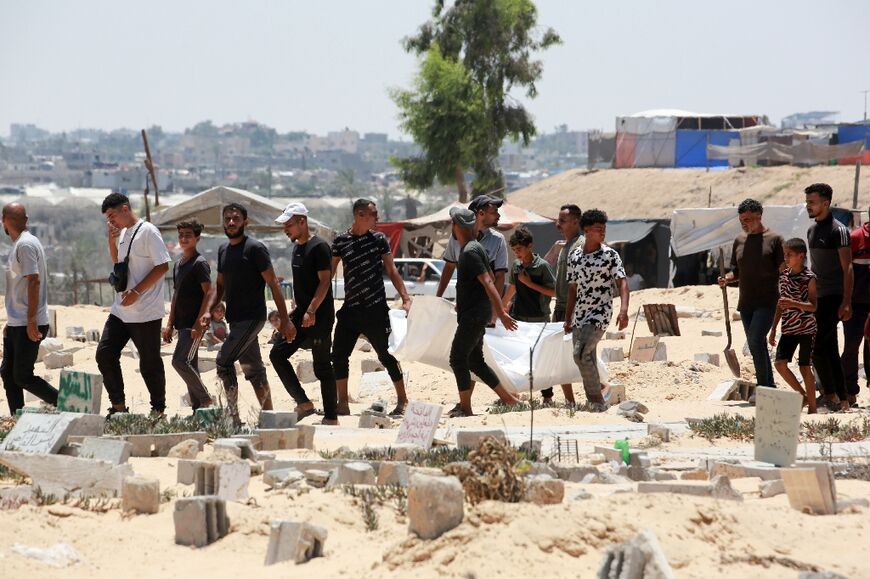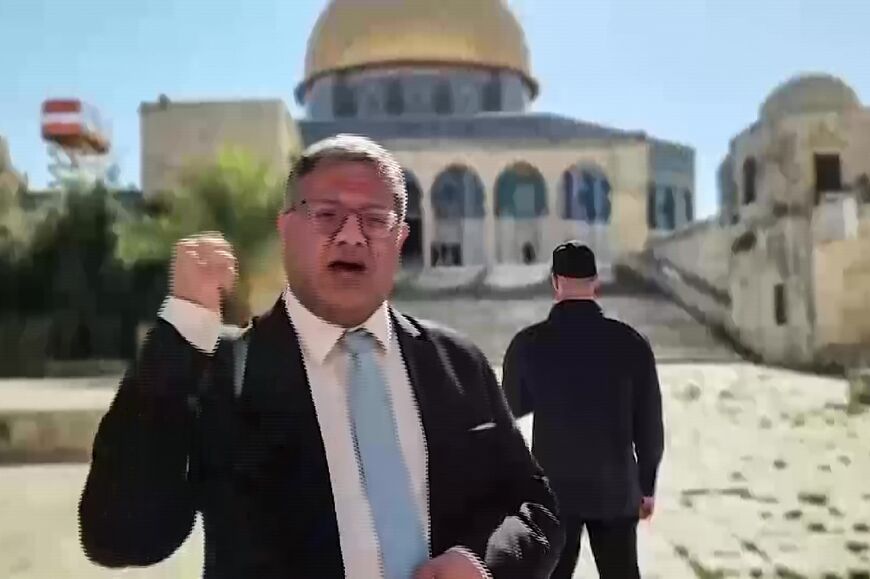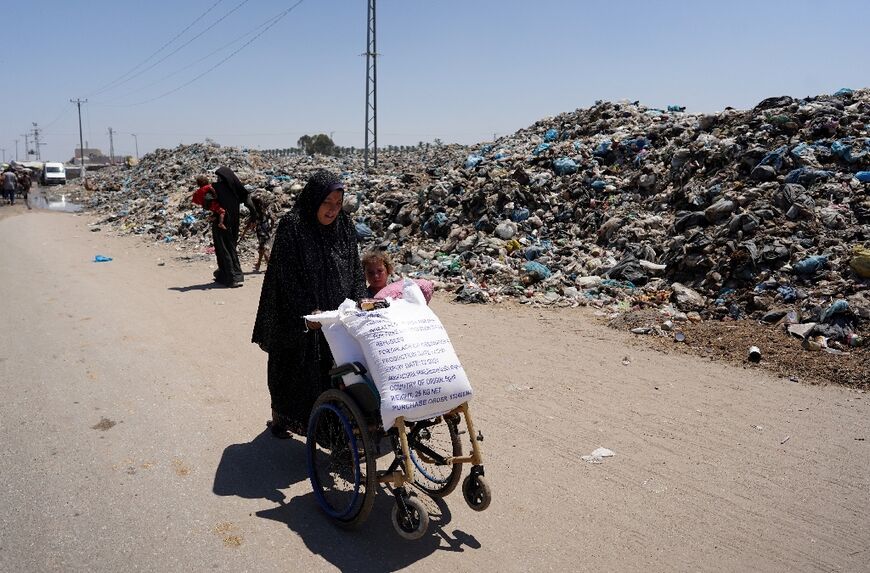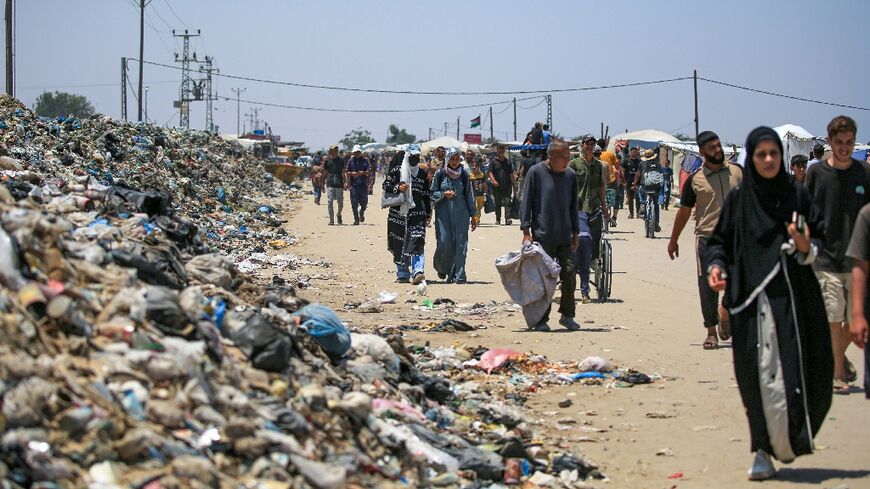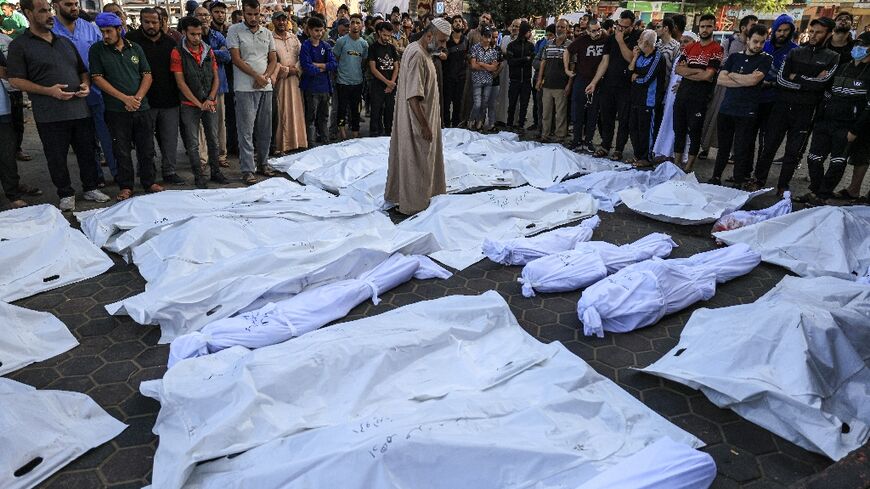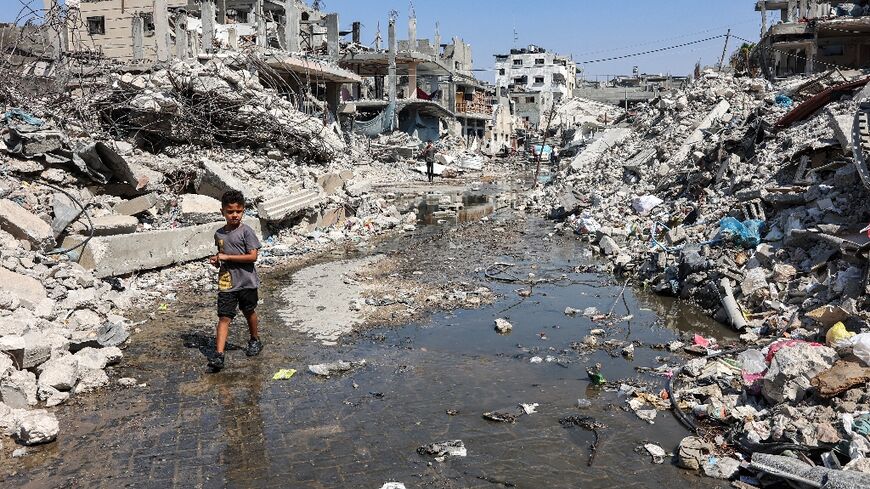Israel lawmakers vote to oppose Palestinian state

The Israeli parliament voted Thursday to oppose a Palestinian state as an "existential threat", a day after Prime Minister Benjamin Netanyahu told lawmakers the army had Hamas "by the throat".
The vote, which drew swift criticism from the Palestinian leadership and the international community, is largely symbolic but laid down a marker ahead of a planned address by Netanyahu to the US Congress next Wednesday.
The veteran hawk has shown little interest in efforts by the US administration to broker a truce and hostage release deal for Gaza, saying that "absolute victory" over Hamas is within reach and vowing to ramp up the military pressure.
But on a visit to Israeli troops in Gaza Thursday, he rejected criticism from hostages' families that his policies are obstructing an agreement to bring their loved ones home, insisting that pressure on Hamas was "not delaying the deal, it is advancing it".
On the ground in Gaza, the Hamas-ruled territory's health ministry reported 54 deaths in 24 hours as Israel kept up its heavy bombardment of recent days.
The resolution passed by Israeli lawmakers in the early hours said a Palestinian state on land occupied by the Israeli army would "perpetuate the Israel-Palestinian conflict and destabilise the region".
It said "promoting" a Palestinian state "would only encourage Hamas and its supporters" after its October 7 attack on Israel which triggered the war.
The resolution passed by 68 votes to nine in the 120-member parliament.
The Palestinian Authority accused Israel's hard-right ruling coalition of "plunging the region into an abyss".
Neighbouring Jordan said the vote "constitutes a serious violation of international law and a challenge to the international community".
France expressed "consternation", noting that the text was "in contradiction" with multiple UN Security Council resolutions.
- 'Moral stain' -
The establishment of a Palestinian state on lands occupied by Israel in the Six-Day War of 1967 has been the cornerstone of the international community's efforts to resolve the conflict for decades.
UN chief Antonio Guterres was "very disappointed" by the Israeli parliament's move. "You can't vote away the two-state solution," his spokesman Stephane Dujarric said.
Guterres has repeatedly called for an immediate ceasefire in the Gaza war, saying Wednesday that "the humanitarian situation... is a moral stain on us all".
All health facilities in southern Gaza have been pushed to "breaking point" by the influx of casualties, the International Committee of the Red Cross said.
AFPTV images showed mourners at Al-Aqsa Martyrs Hospital in the central town of Deir el-Balah, where several white-shrouded corpses lay on the ground. One man cradled the covered body of a child.
- 'By the throat' -
During more than nine months of war, Netanyahu has repeatedly vowed to eradicate Hamas as well as bring home all the hostages.
On Wednesday, he told parliament: "We have got them by the throat."
Far-right members of his governing coalition, including National Security Minister Itamar Ben Gvir, oppose a truce deal. On Thursday, Ben Gvir said Netanyahu must not make a "surrender" accord with Hamas.
In another sign of tensions within the government over the handling of the war, Netanyahu overruled an order by Defence Minister Yoav Gallant, a longtime rival, to build a temporary field hospital in Israel to treat sick children from Gaza.
The prime minister "does not approve the establishment of a hospital for Gazans within Israeli territory -- therefore, it will not be established," his office said.
The war began with Hamas's October 7 attack on Israel which resulted in the deaths of 1,195 people, mostly civilians, according to an AFP tally based on Israeli figures.
The militants also seized 251 hostages, 116 of whom are still in Gaza, including 42 the Israeli military says are dead.
Israel's military retaliation has killed at least 38,848 people, also mostly civilians, according to figures from the Gaza health ministry.
- Polio virus detected -
The war has destroyed much of Gaza's housing and other infrastructure, leaving almost all of the population displaced and short of food and drinking water.
Pax, a Dutch activist group, said in a study released Thursday that "continuous bombing and Israel's fuel blockade have decimated" Gaza's outdated waste collection system, threatening water supplies and farm land.
The health ministries in Israel and Gaza on Thursday reported that the polio virus had been detected in sewage samples from the war-stricken territory.
The Israeli health ministry said poliovirus type 2 was detected in Gaza sewage samples tested in an Israeli laboratory, adding that the World Health Organization had made similar findings.
Umm Nahed Abu Shar, 45, staying in a tent with her family in Deir el-Balah, has endured clouds of flies, the stench of sewage and constant illness.
"We are not living," she said.
burs-kir/jsa



